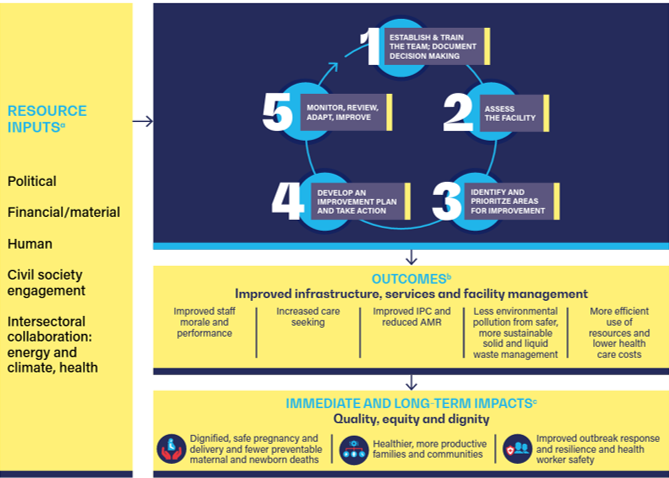Hello! My name is Anushka Banerjee, and I am an MPH candidate in the Global Health concentration at the UNC Chapel Hill Gillings School of Global Public Health. Some of my public health interests include water and sanitation hygiene (WASH), emergency and disaster preparedness and response, and community health access and equity. This summer, I am completing my practicum with the UNC Water Institute, and participating in a project that analyzes WASH and environmental conditions in health care facilities globally. The goal of the project is to use the information to curate and support development of training and capacity building to improve WASH services in these health care facilities (HCF). I am working with a few other MPH students at UNC, and so far it has been a pleasure to meet and work with them!
While our practicum started a few weeks ago, we have been diving headfirst into preliminary tasking. We have been reading through several reports from the Joint Monitoring Program (JMP) and the World Health Organization (WHO), including information about WASH FIT. Many healthcare facilities across the world lack the resources and tools, mechanisms, and personnel to reinforce proper WASH, which compromises the ability of such HCFs to deliver equitable, safe, and quality care to community members. Lack of WASH can also negatively impact infection prevention and control (IPC), which can cause a loss of IPC and lead to detrimental short-and-long term health outcomes. WASH FIT is a management tool and guide for HCFs and is used as a framework to develop, monitor, and implement improvement plans for key aspects of WASH services. These key aspects include water, sanitation, hand hygiene, environmental cleaning, health care waste management, and parts of energy/building/facility management.

WASH FIT collaborates with political, financial, human, civil society, and energy/climate/health resources to create a team, assess HCF facilities, identify areas for improvement, develop a plan and act, and monitor, review, adapt, and improve the plan. The goal of these plans guided by WASH FIT are to improve infrastructure, services, and facility management. This includes improved IPC, less environmental pollution, and a more efficient use of resources across the HCF.
As we move forward with the practicum, we will be conducting systematic reviews, interviews with health care facility personnel, and doing an analysis of the findings from both. Using this, we will develop our deliverables for the practicum, and have a more holistic view of the status of WASH in global health care facilities. The first few weeks of this practicum have excited me for what is to come, and I can’t wait to share next time!
– Anushka
